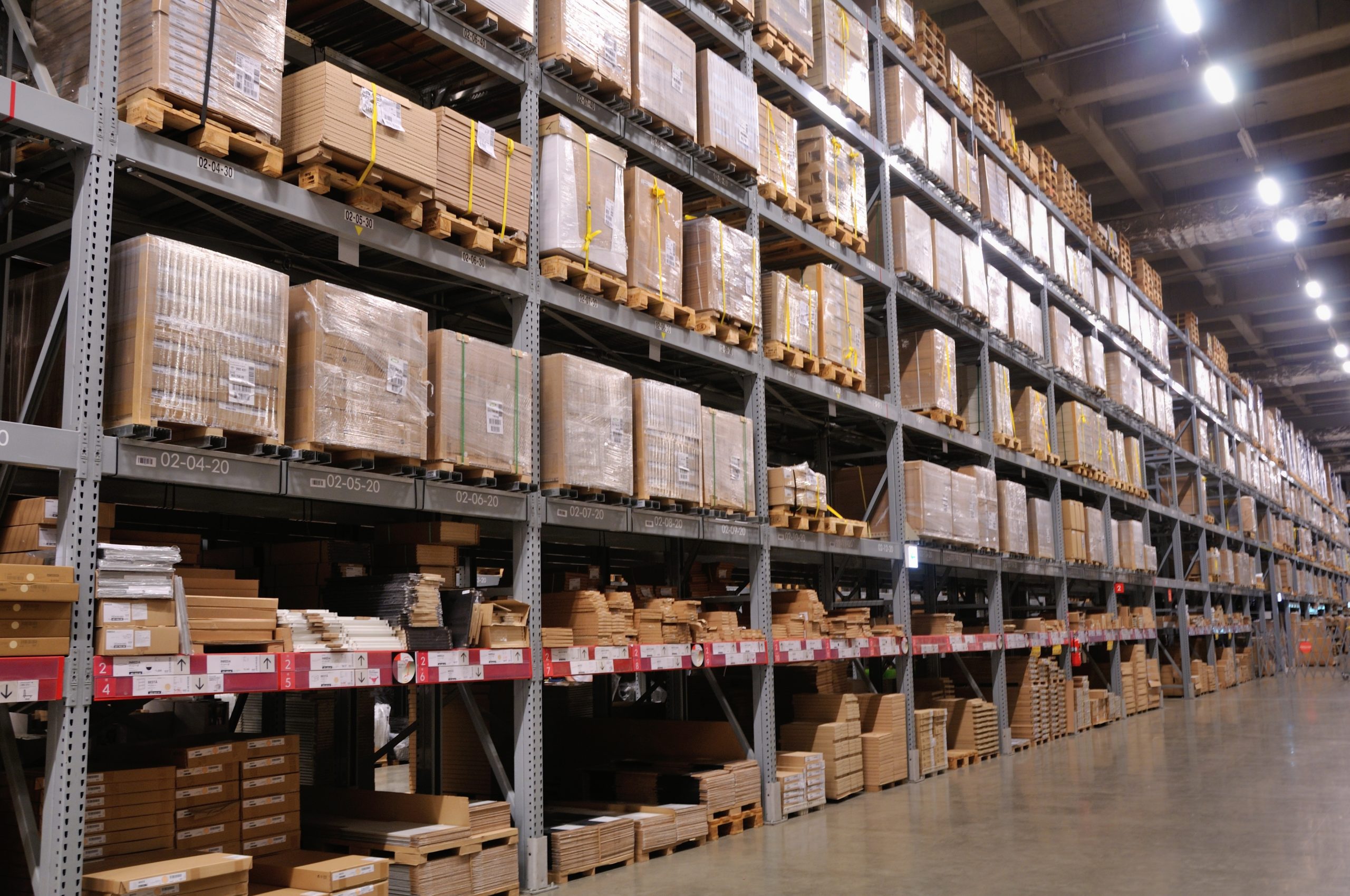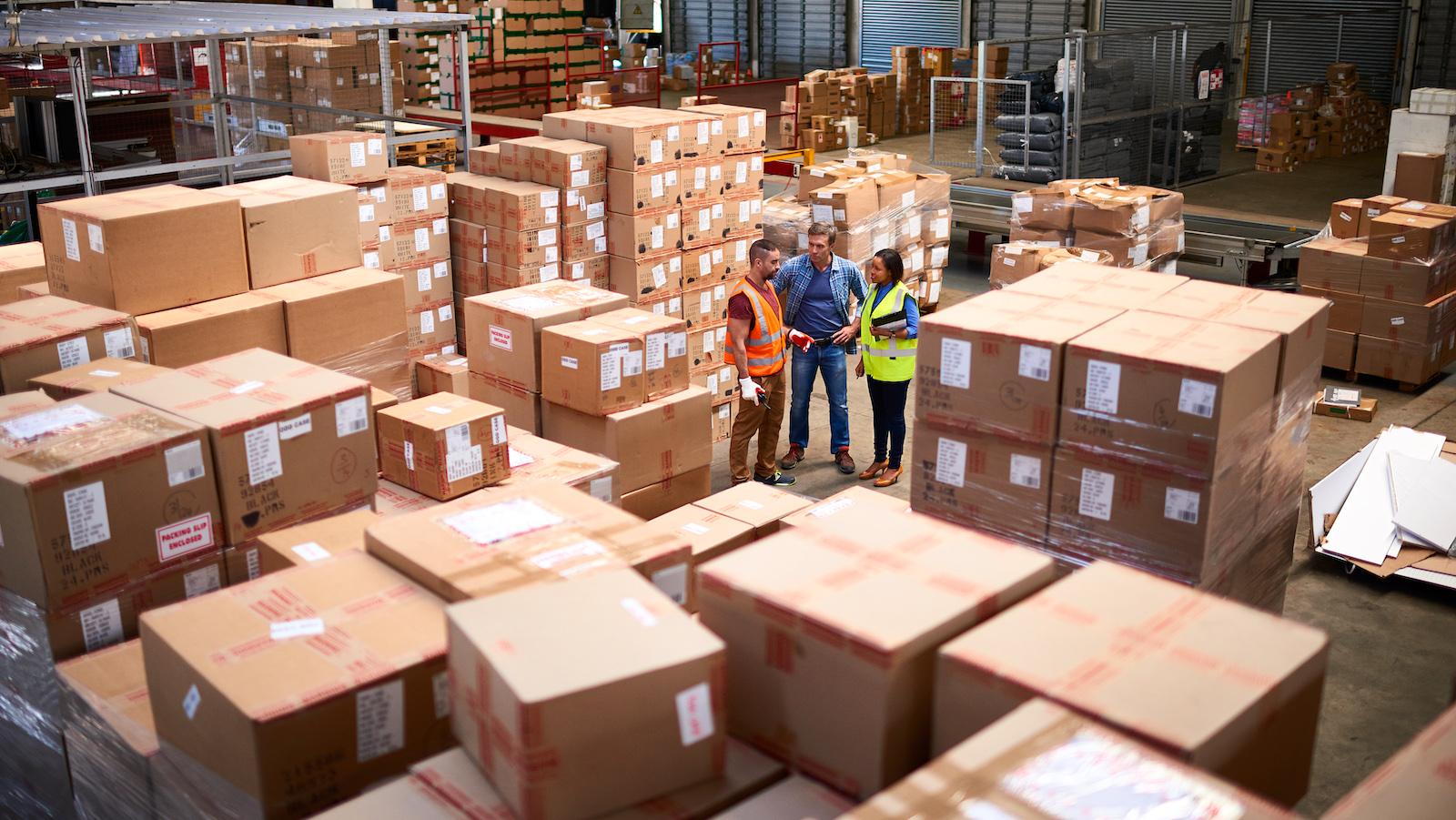Table of Contents
** Minutes
What is a distribution partner?
When do you need a distribution partner?
You’ve perfected your new products. Your shelves are stocked. Your ecommerce website is live.
Now, you have to figure out how to physically distribute your products to customers.
Like most ecommerce operations, distribution is easier said than done. Small businesses typically rely on self-fulfilment when they’re starting out, and distribute products themselves — but this approach is limiting, and successful ecommerce businesses quickly outgrow it.
Finding a distribution partner is the next step in your company’s growth journey. While this idea may be intimidating, the right distribution partner can increase your sales and revenue, free up more of your time, cut costs, and help your business enter new markets and channels as it grows.
In this article, you’ll learn what a distribution partner is, under what circumstances your business needs one, the hallmarks of a good distribution partner, and how ShipBob helps small businesses tackle the challenges of multichannel distribution.
What is a distribution partner?
A distribution partner is a party to which a merchant gives the authority to market, distribute, and/or resell products.
Essentially, a distribution partner works with a merchant to physically get the merchant’s products in front of customers, into a marketplace, or into the hands of customers who purchased the products.
Distribution looks different in each sales channel, so distribution partners may perform different services depending on the sales channels a merchant utilises.
- In B2B and retail distribution, for example, distribution partners coordinate the logistics of getting products into retail stores or to wholesalers.
- In ecommerce channels, on the other hand, distributors focus on processing, fulfiling, and shipping orders to end-users.
If a business employs a multichannel sales strategy, it needs a distribution partner that can function across channels.
When do you need a distribution partner?
For relatively small ecommerce businesses, it may not make sense to outsource fulfilment and distribution to a third party yet. But as your business grows, new challenges begin to arise that require outside expertise. These critical junctures are often situations that distribution partners are well-equipped to handle.
Here are a few telltale signs that it’s time to consider a distribution partnership.
You need to ship internationally
International shipping is a multifaceted process with many complications for small business owners to think through, including tariffs, import duties, customs, restrictions, and regulatory requirements. These extra fees and taxes make it expensive for both the seller and the customer, and orders still take longer to arrive than domestic shipments.
Alone, many small businesses do not have the time, resources, or expertise to sell abroad; but with a distribution partner, ecommerce stores have an ally to help them navigate international shipping.
Distribution partners are familiar with the complexities of distributing products internationally, and help merchants develop strategies to secure quick and cost-effective international shipping.
ShipBob, for example, advises its merchant partners to store inventory in fulfilment centres within the country they want to ship to, to bypass international shipping complications altogether, save money, and secure fast shipping.
“I’ve also been fortunate to ship orders to customers from around the world. The process of shipping internationally to optimise costs has been easy. There’s no difference on my website for international shipping except adding tariff codes on products. Otherwise ShipBob handles everything for me. Best of all, the price that ShipBob charges to ship internationally is less than it costs for me to print a USPS label myself.”
Anastasia Allison, founder of Kula Cloth
Your shipping is taking too long
The majority of online shoppers today expect fast delivery on their orders (e.g., 2 days in the US). While some may be willing to wait an extra day or two, orders that take a week or more to arrive will likely garner complaints — especially if customers were promised a quick turnaround time.
When customers have to wait too long for their orders, it sours the customer experience. To retain brand loyalty, garner repeat sales, increase conversions, and reduce cart abandonment rates, quick and reliable shipping is a necessity.
Distribution partnerships help small businesses achieve this quick standard affordably. As logistics experts, distributors employ various strategies to optimise your supply chain, which speeds order fulfilment while also reducing shipping costs.
At the same time, distributors will work with trusted last-mile couriers to make sure that the last leg of distribution is executed quickly and smoothly.
While distribution partners cannot control supply chain delays, they do have the resources, best practices, and industry experience to provide small businesses with the fast, inexpensive shipping they may not be able to offer on their own.
You need better supply chain logistics
When you’re self-fulfiling and self-distributing, it is extremely easy to make errors — but even a small error has the potential to grind your supply chain to a halt, and make it impossible to distribute your product to customers.
Say, for example, that you accidentally miscount your inventory, and assume you have more of a particular SKU than you actually do. This miscalculation may lead you to time inventory replenishment incorrectly, which could in turn lead to a costly stockout that slows supply chain velocity to a crawl.
Similarly, say you have to ship a batch of orders from your local post office — but because you leave too late, the post office is closed by the time you get there. You then have to wait until the next day to send the orders, which means that they will arrive late and damage customer confidence.
In these situations, small mistakes make it difficult to get products into the customer’s hands in a timely manner. Handing off fulfilment to a distribution partner can iron out those little mistakes and streamline your supply chain in the process.
Distributors know how to hone a supply chain, and combine SOPs, technology, and automation to reduce the number of hiccups that snowball into serious issues.
What to look for in a good distribution partner?
The right distribution partner can be a gamechanger for your business, allowing you to increase sales, improve operational efficiency, and expand into new channels.
To help you find the best distribution partner to springboard your business into growth, here are a few of the factors you should look for in your next distribution partner.
Fulfilment reach
With today’s global ecommerce industry, distributors should be able to ship across the country (and overseas, if necessary) quickly and cost-effectively for your company — and even fulfil from multiple countries.
To meet this expectation, the right distributor for your brand will have an extensive network of fulfilment centres where orders can be processed, picked, packed, and readied for shipping.
With fulfilment centres in a variety of regions across the country (or world), merchants should be able to distribute inventory so that every order can be fulfiled from the location closest to its destination point.
This reduces the average distance an order must travel, which in turn facilitates quicker shipping and significantly reduces shipping costs for your business.
The positive effects are only heightened when you ship internationally, as having fulfilment centres in multiple countries makes shipping internationally much easier, quicker, and cheaper for merchants. So whether you plan to ship locally, regionally, or internationally, make sure your distribution partner has the fulfilment and distribution network to keep your shipping speeds and costs competitive.
“For us, changing from a 3 week lead time to 3 days through ShipBob is what drove our sales. Even now, one of the primary reviews we get on Etsy is, ‘My order arrived really quickly!’ Having the stock locally in the US means that lead times and shipping times are minimal, and that you’ll get higher conversion rates because you’re offering better lead times.”
John Greenhalgh, Co-Founder of A Year of Dates
Infrastructure
Efficient fulfilment and distribution requires a level of infrastructure that small businesses typically don’t have access to. An established distributor, however, will have already invested in the necessary resources.
The right partner will have not only the basic necessities, but also additional equipment, capabilities, and tools to support top-quality fulfilment and distribution for their partners. Here are just some of the pieces of infrastructure to look for when evaluating a potential distribution partner:
- Sufficient warehousing space to house your products (preferably across multiple locations)
- Warehousing equipment (forklifts, pallet jacks, warehouse racks, etc.)
- Free packaging supplies, such as poly mailers, dunnage, tape, and boxes
- Inventory scanners, barcodes, labels, and other tools for inventory management
- Automation to optimise the fulfilment process, including automatic order processing, inventory level updates, and reorder point notifications
- Warehouse management systems, inventory management systems, and analytic tools with real-time updates and inventory tracking capabilities
Reliability
Your distribution partner’s ability to follow through on delivery and distribution promises directly impacts your company’s ability to satisfy customers and turn a profit; so when choosing a distribution partner, prioritise trust and consistency in your partner relationship.
Look for a distribution partner that maintains a high order accuracy rate, a short fulfilment time, a consistent track record for on-time 2-day delivery, and that utilises reliable, updated technology to help prevent supply chain breakdowns.
The distribution partner should also be easily accessible in case an issue arises, and should demonstrate dedication to solving issues rather than passing them down the supply chain.
Scalability
In general, an ecommerce business should work with a distribution partner that is comparable to its own size and close to the local markets it services.
However, you should also look for a distribution partner that can scale alongside you as your business grows. The right distribution partner will be able to offer you new avenues for expansion and facilitate your company’s growth into new markets, locations, and channels.
Smaller brands should therefore look for a 3PL distribution partner that, while able to support a small operation, nevertheless has the capacity to grow alongside your business.
“ShipBob has been with us since day one of shipping our Kickstarter backer rewards and has since fulfiled nearly a quarter of a million orders for us. ShipBob offers fast order processing, which is important when we’re getting hundreds of orders each day. We wouldn’t be able to fulfil the volume we’ve seen — up to nearly 13,000 orders per month — on our own.”
Manuel de la Cruz, CEO at Boie
Distribution challenges
Every ecommerce business faces challenges in distribution, but having the right distribution partner is a major competitive advantage — especially for growing brands.
Here are some common ecommerce challenges that distribution partners can help you tackle.
Increasing order volume
As demand for your product grows and order volume picks up, the logistics of getting orders out the door get exponentially more complicated. Having to fulfil more orders in the same amount of time without any additional support is not only overwhelming for business owners, but also leads to packing mistakes and missed delivery deadlines.
With an expert team that’s equipped to handle these extra volumes, all of those orders will be fulfiled accurately and on time without you needing to rush to get it all done yourself.
Distribution partners enable your business to process, fulfil, and deliver even greater order volume while freeing up time for stakeholders to focus on other important business functions — a true win-win.
Supply chain disruptions
As 2020 (and 2021) repeatedly taught us, supply chain disruptions can be as crippling as they are unexpected. While some are more predictable than others (such as holiday shipping delays and shutdowns), a good distribution partner will have infrastructure and processes in place to help you prepare for those you see coming, and navigate those you don’t.
Distributors build resilient supply chains by:
- Optimising fulfilment and distribution processes (as a lean supply chain leaves more room for flexibility and supply chain agility in the face of change)
- Giving you tools to forecast demand so you always have enough safety stock to satisfy customer demand
- Planning ahead for seasonal delays, and create contingency plans for unlikely disasters
Meeting consumer expectations
Delighting a customer has never been more important for ecommerce companies — but it’s also never been as difficult. Online shoppers expect a lot from ecommerce brands today, including accurate orders, 2-day or even next-day delivery that’s affordable (or even free), and a memorable unboxing experience that wows them.
As expectations continue to rise, you’ll need a distribution partner that can rise to challenge as well. The best distribution partners utilise best practices to help you meet customer expectations at every turn.
This includes using fulfilment best practices to keep order accuracy rates high, implementing a distributed inventory approach to facilitate cost-effective 2-day shipping, and even working with you to store and use customised packaging materials, so that your shipments make a lasting impression on your customers.
While it is technically possible for an ecommerce company to do this on its own, it is far easier and more cost effective to outsource the responsibility to a professional distributor.
Let ShipBob work for you
As a tech-enabled 3PL, ShipBob is much more than your typical distribution service.
While we help distribute ecommerce orders all over the country, ShipBob is a comprehensive, out-of-the-box fulfilment solution for ecommerce brands that allows you to manage inventory, process orders, and oversee shipping and distribution from a single platform.
Once you send us your inventory, ShipBob takes care of distribution logistics for you. Our fulfilment network includes dozens of fulfilment centre locations across the US and abroad, enabling us to store and ship your finished goods quickly and cost-effectively.
ShipBob’s diverse shipping options are available to merchants as well, so you can offer your customers the speedy experience they expect. Merchants can even track our US 2-day shipping performance, and see how we’re delivering on order accuracy, SLAs, receiving times, and more.
ShipBob also offers merchants the advanced analytics tools and technology they need to be in control of order fulfilment. From one dashboard, brands get instant visibility into real-time inventory levels, can set up automatic reorder notifications to ensure product flow remains consistent, and track shipments all the way to the customer’s doorstep.
With ShipBob, your DTC brand receives the distribution support it needs to grow — and as it grows, ShipBob’s omnichannel capabilities enable our partners to expand into new channels without sacrificing simplicity or quality. From B2B and retail to global distribution, ShipBob helps you get your inventory out of your house, your brand into more channels, and your products into customers’ hands.
“One of our must-haves for a fulfilment solution was partnership. We wanted to partner with a 3PL that would be kind of like us: positive, relaxed, but also reliable. We really wanted a provider with whom we could form a relationship, where it wouldn’t just be based on numbers — and we found that with ShipBob.”
Adelina Zotta, Co-Founder of NutriPaw
Distribution partner FAQs
Here are answers to the most common questions about retail warehousing.
How do I choose a distribution partner?
First, consider the size and scope of your ecommerce operation, and find a distribution partner who is of an equivalent or slightly larger size compared to your brand.
Next, consider each candidate’s fulfilment network reach, infrastructure capabilities, degree of reliability, and ability to scale with your business as it grows.
The ideal partner will excel in each of these categories and provide services for each distribution channel your business requires.
What is a distribution partnership?
A distribution partnership is a business arrangement in which a merchant hires a distribution business to handle the distribution of the merchant’s product through various channels. Depending on what sales channels a company sells through, distribution partners may also take on inventory storage, order processing, and fulfilment.
Is a distribution partner and a channel partner the same thing?
A distribution partner is a type of channel partner. While channel partners are technically companies that handle products or services for a merchant or vendor, distributors are transporters or resellers specifically in charge of the physical distribution and delivery of finished goods to consumers and/or purchasers.



